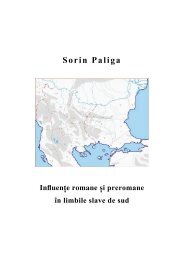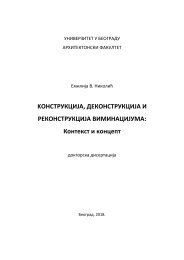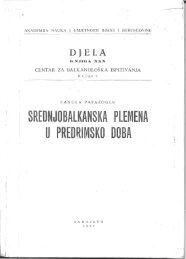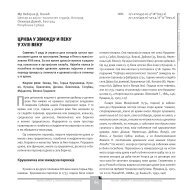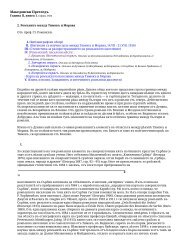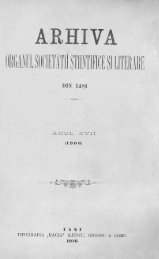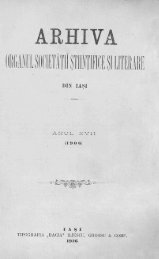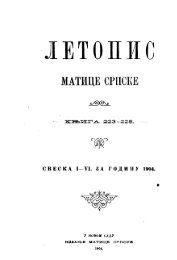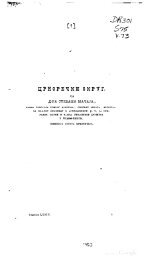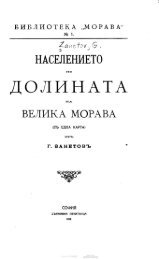Romanians from Serbia in Denmark
You also want an ePaper? Increase the reach of your titles
YUMPU automatically turns print PDFs into web optimized ePapers that Google loves.
parts of the Vlach community <strong>in</strong> <strong>Denmark</strong>, but had been suppressed dur<strong>in</strong>g<br />
Tito’srule. Among these values were a greater openness towards religious<br />
matters and a revived <strong>in</strong>terest <strong>in</strong> orig<strong>in</strong>s,nationality and ethnicity, as well as<br />
an ideological celebration of the family as a core <strong>in</strong>stitution <strong>in</strong> society.<br />
In particular, the emphasis on the family <strong>in</strong> <strong>Serbia</strong>n nationalism is likely<br />
to have made this ideology appeal<strong>in</strong>gto Vlach women. For them, migration<br />
implied a loss of previous <strong>in</strong>dependence and created a situation more like<br />
thetraditional role of <strong>Serbia</strong>n women, whose sphere of control also tended<br />
to be conf<strong>in</strong>ed to the private realm.Dur<strong>in</strong>g the Milosevic regime, economic<br />
<strong>in</strong>security and the troubles related to everyday existence worked to<br />
strengthen women’s self-denial, but at the same time gave them new power<br />
and control over those who were dependent on them (Bijelic 2005: 286).<br />
The praise of motherhood <strong>in</strong> nationalist rhetoric and the celebration of<br />
women’s strong but hidden position with<strong>in</strong> the family attracted a large<br />
number of female voters <strong>from</strong> the socially fragile and economically<br />
disadvantaged groups <strong>in</strong> <strong>Serbia</strong> (2005: 296). Likewise, certa<strong>in</strong> migrant<br />
women (particularly <strong>in</strong> the older generation) may have regarded the<br />
ideological ‘return to ancient values’ as hav<strong>in</strong>g thepotential to bolster their<br />
own roles as the guardians of tradition <strong>in</strong> charge of keep<strong>in</strong>g alive the<br />
connectionsbetween the village of orig<strong>in</strong> and the new homeland.<br />
At present, it is strik<strong>in</strong>g how the most important rites of passage, such as<br />
marriage, baptism and burial, cont<strong>in</strong>ue to take place <strong>in</strong> the homeland<br />
village. A trip to the graveyards <strong>in</strong> the villages of orig<strong>in</strong> reveals a large<br />
number of elaborate and well-kept tombstones. This confirms the<br />
importance of be<strong>in</strong>g buried properly, that is, <strong>in</strong> <strong>Serbia</strong>n soil. Funerals<br />
cont<strong>in</strong>ue to form a very important part of the Vlach religious tradition as<br />
symbolicacts to celebrate their common roots (Schierup and Ålund 1986:<br />
53). After the funerals, pomanas are held<strong>in</strong> the village at certa<strong>in</strong> <strong>in</strong>tervals<br />
<strong>in</strong> honour of the dead to represent the sacrifices, humility and co-operation<br />
towards the ancestors. 9 Many migrants grumble over the constant<br />
obligations be<strong>in</strong>g placed on them to f<strong>in</strong>ance extravagant ceremonies of<br />
remembrance. As the keepers of tradition, mothers and grandmothers <strong>in</strong><br />
particular have a strategic <strong>in</strong>terest <strong>in</strong> ensur<strong>in</strong>g that they are upheld.<br />
However, they are wellaware that, if such traditions are to be cont<strong>in</strong>ued, it






